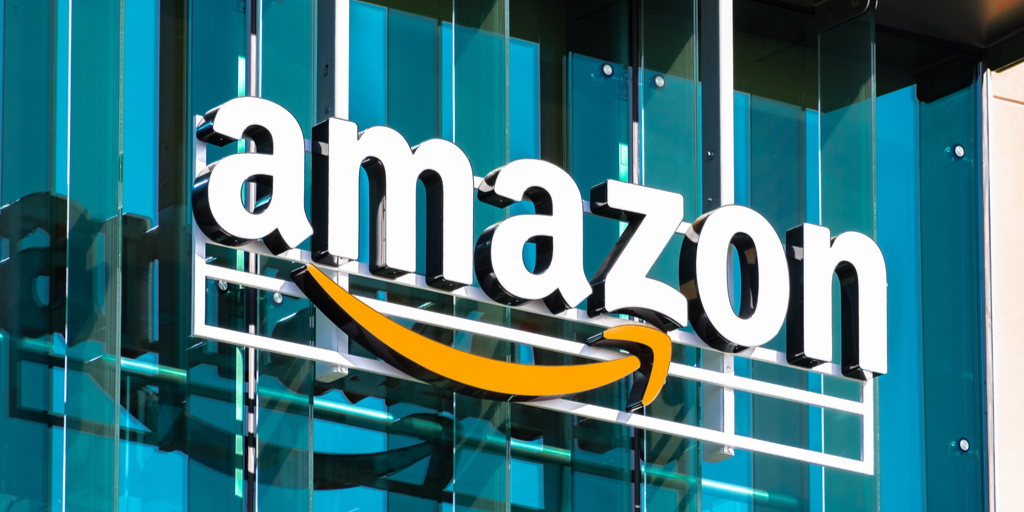
Amazon is one of the most valuable companies in the world, with a market capitalization of over $1.5 trillion as of February 2023. As an e-commerce giant, Amazon has revolutionized the way people shop and has become an essential component of many people’s lives. As a result, it is no surprise that many investors are interested in investing in Amazon, and exchange-traded funds (ETFs) that offer exposure to Amazon are a popular way to do so. In this article, we will take a look at five ETFs with exposure to Amazon and the benefits they offer.
-
Fidelity MSCI Consumer Discretionary Index ETF (FDIS)
The Fidelity MSCI Consumer Discretionary Index ETF (FDIS) is an ETF that tracks the performance of the MSCI USA IMI Consumer Discretionary Index. This index consists of companies in the consumer discretionary sector, including Amazon. As of February 2023, Amazon is the largest holding in the FDIS ETF, with a weight of approximately 25%. Other top holdings in the ETF include Home Depot, Nike, and McDonald’s.
One of the benefits of investing in FDIS is that it offers exposure to a broad range of consumer discretionary companies in addition to Amazon. This means that if Amazon were to experience a significant downturn, the impact on the overall ETF would be less severe than if an investor had invested solely in Amazon. Additionally, FDIS has a low expense ratio of 0.08%, which is lower than the average expense ratio for similar ETFs.
-
Consumer Discretionary Select Sector SPDR Fund (XLY)
The Consumer Discretionary Select Sector SPDR Fund (XLY) is an ETF that tracks the performance of the Consumer Discretionary Select Sector Index. This index consists of companies in the consumer discretionary sector, including Amazon. As of February 2023, Amazon is the largest holding in the XLY ETF, with a weight of approximately 24%. Other top holdings in the ETF include Home Depot, McDonald’s, and Nike.
One of the benefits of investing in XLY is that it offers exposure to a broad range of consumer discretionary companies in addition to Amazon. This means that if Amazon were to experience a significant downturn, the impact on the overall ETF would be less severe than if an investor had invested solely in Amazon. Additionally, XLY has a relatively low expense ratio of 0.13%, which is lower than the average expense ratio for similar ETFs.
-
Vanguard Consumer Discretionary ETF (VCR)
The Vanguard Consumer Discretionary ETF (VCR) is an ETF that tracks the performance of the MSCI US Investable Market Consumer Discretionary 25/50 Index. This index consists of companies in the consumer discretionary sector, including Amazon. As of February 2023, Amazon is the largest holding in the VCR ETF, with a weight of approximately 25%. Other top holdings in the ETF include Home Depot, McDonald’s, and Nike.
One of the benefits of investing in VCR is that it offers exposure to a broad range of consumer discretionary companies in addition to Amazon. This means that if Amazon were to experience a significant downturn, the impact on the overall ETF would be less severe than if an investor had invested solely in Amazon. Additionally, VCR has a relatively low expense ratio of 0.10%, which is lower than the average expense ratio for similar ETFs.

-
Invesco S&P 500 Equal Weight Consumer Discretionary ETF (RCD)
The Invesco S&P 500 Equal Weight Consumer Discretionary ETF (RCD) is an ETF that tracks the performance of the S&P 500 Equal Weight Consumer Discretionary Index. This index consists of companies in the consumer discretionary sector, including Amazon. However, unlike other ETFs on this list, RCD weights all its holdings equally. This means that Amazon has the same weight as every other company in the index, which can be beneficial for investors who are looking for exposure to smaller consumer discretionary companies in addition to Amazon. As of February 2023, Amazon has a weight of approximately 0.6% in the RCD ETF. Other top holdings in the ETF include Booking Holdings, Dollar Tree, and Ross Stores.
One of the benefits of investing in RCD is that it offers exposure to a broad range of consumer discretionary companies in addition to Amazon, with an equal weight given to each holding. This means that investors can potentially benefit from the growth of smaller consumer discretionary companies in addition to Amazon. Additionally, RCD has a relatively low expense ratio of 0.40%, which is higher than the other ETFs on this list but still lower than the average expense ratio for similar ETFs.
-
First Trust Dow Jones Internet ETF (FDN)
The First Trust Dow Jones Internet ETF (FDN) is an ETF that tracks the performance of the Dow Jones Internet Composite Index. This index consists of companies that generate at least 50% of their revenue from the internet, including Amazon. As of February 2023, Amazon is the largest holding in the FDN ETF, with a weight of approximately 10%. Other top holdings in the ETF include Alphabet, Facebook, and PayPal.
One of the benefits of investing in FDN is that it offers exposure to a broad range of internet companies in addition to Amazon. This means that if Amazon were to experience a significant downturn, the impact on the overall ETF would be less severe than if an investor had invested solely in Amazon. Additionally, FDN has a relatively low expense ratio of 0.52%, which is higher than some of the other ETFs on this list but still lower than the average expense ratio for similar ETFs.
Conclusion
Investing in ETFs that offer exposure to Amazon can be a great way for investors to gain exposure to the e-commerce giant while also diversifying their portfolio. Each of the ETFs on this list offers slightly different benefits, such as exposure to a broad range of consumer discretionary companies, equal weighting of all holdings, or exposure to a range of internet companies. Investors should consider their investment goals and risk tolerance before selecting an ETF to invest in.

